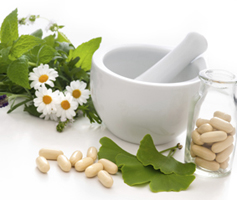
Herbal business
Due to the ever increasing demand for Ayurvedic medicines and nutraceuticals, business ventures based on herbs have an excellent opportunity. Following are some of the basic requirements to set up herbal business,
• Business plan
• Office facility
• Finance
• Pilot plant
• Manufacturing facility
• Testing Laboratory
• Training of personnel
• Market research and networking with government agencies.
The development starts right from identifying the herb, monitoring its cultivation, certification of nurseries, setting up manufacturing and analytical facilities, training, access to information on medicinal plants, agro techniques etc and coordination with the government agencies. The increasing investment and business opportunities in the herbal industry have to be tapped by each manufacturer by adoption of Good Manufacturing Practices in his industry. What are these Good Manufacturing Practices?
Good Manufacturing Practices (GMP)
The World Health Organization has set clear guidelines for GMP herbal products. They emphasize on consistent safety, efficacy and quality of herbal medicines. The highlights of these guidelines are,
• Quality Assurance - Analysis of raw materials, in process and finished products using modern techniques like chromatography, spectrometry, etc.
• Sanitation and hygiene - strict control on microbiological contamination, quality of water used and waste disposal.
• Qualification and Validation - qualification of equipment, process validation and change control with written procedures for all critical steps and clearly defined acceptance criteria.
• Personnel - People should possess sound knowledge of the formulations, procedures, etc. Adequate training in phytochemistry, microbiology, hygiene, GMP, etc. is a must. Records and periodic assessment of training is mandatory.
• Premises - Manufacturing, storage, laboratory, etc.
• Equipment - Cleaning and sanitization
• Material - Storage and analysis of raw and packaging material
• Documentation - Specifications, Standard operating Procedures, Analysis reports, etc.
• Production and Quality control
Future of herbal business
Increasing population, greater ageing population, changes in life style, etc. call for a greater demand in health care services. The nature care in health, food, cosmetics, personal care products, etc. is becoming popular due to its known benefits and lesser or no side effects. This increases the natural products business opportunity multifold. The global trade of natural products is estimated to grow three times by 2020. Even the projected growth of herbal medicines is about 10-20%.
Turnkey projects
The plants and projects under turnkey herbal product development offer cost effective, sophisticated technological solutions to improve productivity and enhance the quality, keeping the environment protected. They help to develop a good and safe to use formula. Emphasis is to retain the benefits using advanced technology and following GMP to give a consistent, quality product.



